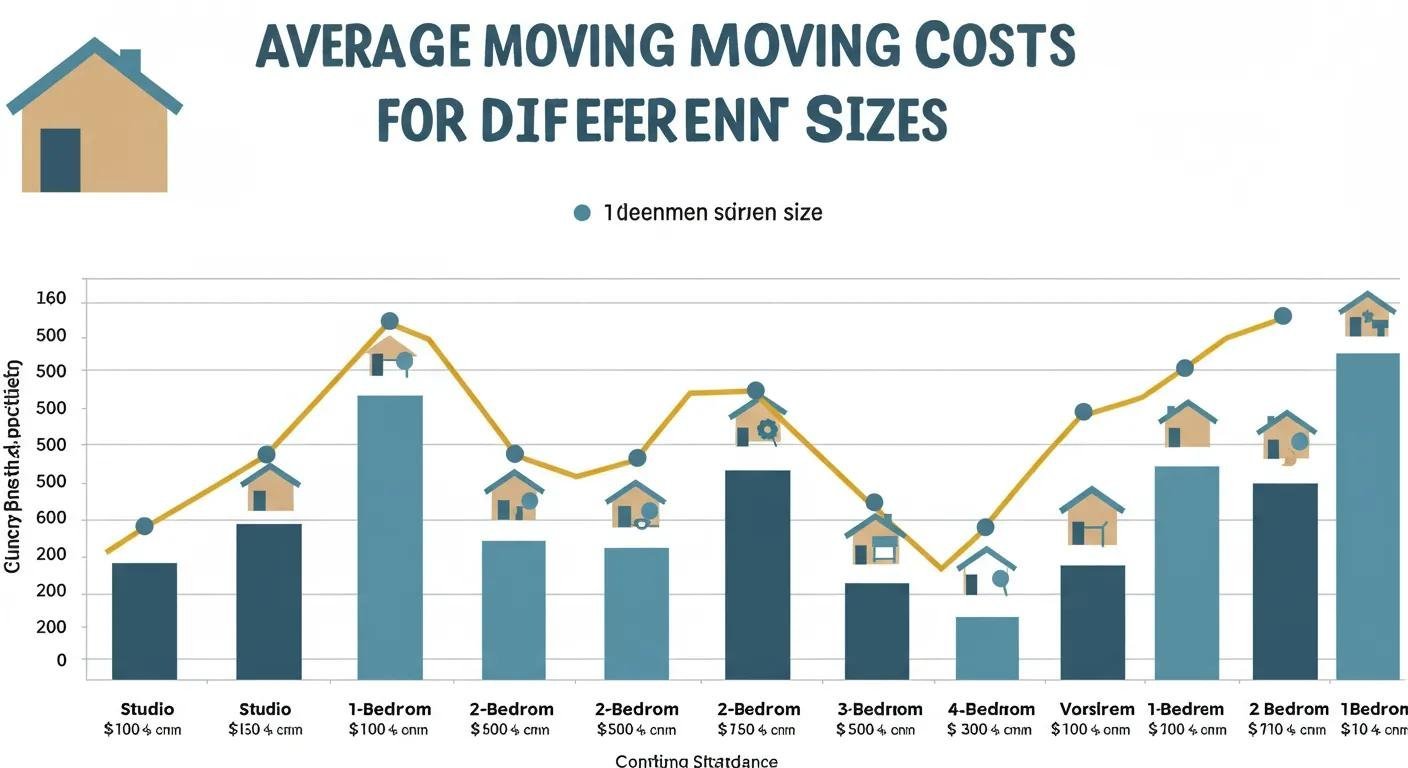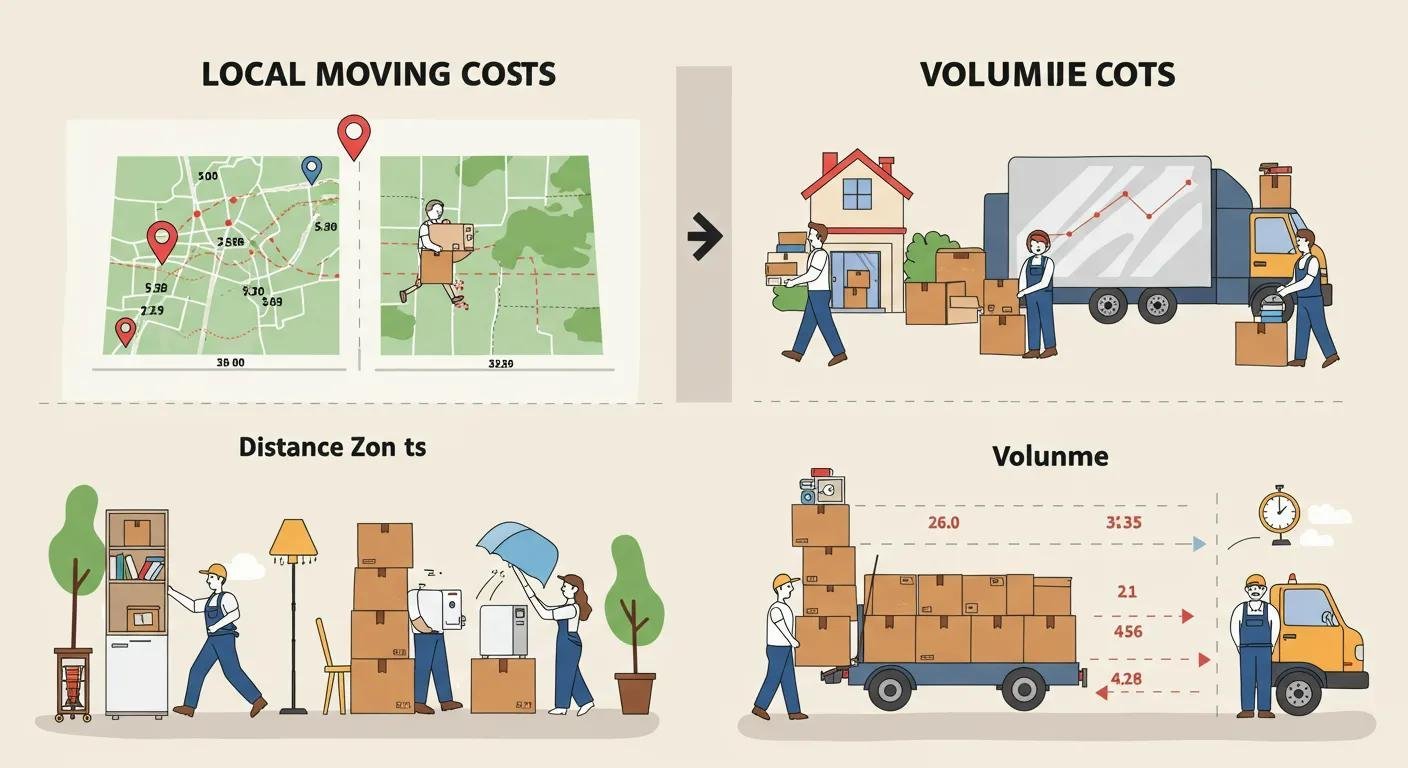Average Cost of Local Moving Services Explained

Average Local Moving Costs | Horizon Boston Movers | Movers Boston
Understanding the average cost of local moving services empowers consumers to budget accurately and avoid unexpected expenses. Local moves—typically under 100 miles—combine labor, transportation, and optional packing services into a single package, and knowing price benchmarks helps avoid surprise fees. This guide covers the average prices for different home sizes, hourly rates, regional variations, key cost factors, quote accuracy, and money-saving strategies—all framed around transparent pricing principles. For example, organizations like Movers Boston – Local & Long Distance Moving Company emphasize clear rate structures to help residents plan their relocation without hidden charges.
What Are the Average Prices for Local Moving Services?

Local moving services deliver efficient relocation within a city or state by charging either a flat rate or an hourly labor fee. Typical price estimates reflect home size, crew size, and distance, with costs ranging from a few hundred dollars for a studio to several thousand for larger homes.
How Much Does It Cost to Move Different Home Sizes Locally?
Below is a breakdown of typical costs based on residence size and crew requirements.
Moving a studio apartment locally generally requires a smaller crew and shorter time, while a 3-bedroom house involves more labor and equipment, naturally increasing the total cost.
What Are Typical Hourly Rates for Local Movers?
Local movers set hourly rates per person, covering labor, truck usage, and basic equipment.
- $25 – $50 per mover per hour, depending on market and season
- Team of 2 movers: $50 – $100 per hour
- Team of 3 movers: $75 – $150 per hour
Smaller teams suit compact moves but may extend labor time on larger jobs, affecting overall cost.
Average Costs and Hourly Rates for Local Moving Services
The average cost for local moving services varies significantly based on home size, with studio apartments ranging from $501 to $985 and larger 2-3 bedroom homes costing between $966 and $1,733. Hourly rates for local movers typically fall between $38 and $75 per mover, per hour, though some markets may see rates up to $150 or $200 per hour.
This research provides verified price ranges and hourly rates for various home sizes and crew configurations, directly supporting the article’s initial cost breakdown.
How Do Local Moving Company Rates Vary by Location and Distance?
Rates adjust based on urban density, living-cost indices, and mileage bands.
- Major metro areas (e.g., Boston, New York) see 10–20% higher rates than smaller towns
- Short distances under 10 miles often incur a minimum charge of 2–3 hours
- Moves between 10 and 50 miles typically include a per-mile surcharge of $0.50–$1.00 per mile
Urban parking restrictions and high demand can elevate hourly fees, whereas rural moves may involve fuel surcharges to cover longer travel segments.
What Factors Affect the Cost of Local Moving Services?

Several core variables drive local moving expenses, from move length to service add-ons.
How Does Distance Influence Local Moving Costs?
Distance directly impacts travel time and fuel use, making it a central cost component.
- Under 10 miles: minimum hourly charge often applies
- 10–50 miles: additional $0.50–$1.00 per mile
- 50–100 miles: custom flat rate or premium per-mile rate
Longer hauls increase total labor hours and truck usage fees, pushing prices upward.
What Role Does Volume and Number of Movers Play in Pricing?
The quantity and weight of belongings determine crew size and handling time.
- Studio: 1–2 movers handle 20–30 boxes in 2–4 hours
- 1-Bedroom: 2 movers manage 50–70 items in 3–5 hours
- 2-Bedroom: 3 movers pack and load 100–150 items in 4–6 hours
- 3-Bedroom+: 3–4 movers tackle 200+ items over 6–8 hours
Larger volumes require more personnel and longer durations, directly influencing total labor costs.
How Do Special Items and Additional Services Affect Costs?
Transporting bulky or delicate possessions and opting for packing elevates service fees.
- Piano or pool table: $150–$400 extra
- Appliance relocation: $50–$150 per item
- Full packing/unpacking: $25–$50 per hour per packer
- Furniture disassembly/reassembly: $30–$60 per item
Specialized handling, protective materials, and extra labor create additional line items on your invoice.
When Is the Cheapest Time to Move Locally?
Seasonal demand and scheduling windows influence rate fluctuations.
- Off-peak months (December–February): rates can drop 10–20%
- Mid-week moves (Tuesday–Thursday) often cost less than weekends
- Mid-month bookings avoid peak rush at month-end
Strategic timing can reduce hourly rates and secure crew availability when demand eases.
Seasonal Impact on Moving Rates and Quote Accuracy
Moving costs are heavily influenced by seasonal demand, with prices typically increasing by 20-30% during the peak moving season from May to September. Conversely, off-peak months, such as December, often present the cheapest rates. Studies indicate that a significant portion of consumers, around 60%, experience final moving costs that differ from their initial estimates, highlighting the importance of detailed quotes.
This research validates the article’s advice on strategic timing for cost savings and the critical need for accurate, transparent quotes to avoid unexpected charges.
How Can You Get an Accurate Quote for Local Moving Services?
A precise moving quote requires detailed information and transparent rate calculations.
What Information Should You Provide to Get a Precise Moving Quote?
Suppliers need comprehensive move specifications to refine estimates.
- Complete inventory of furniture and box count
- Exact origin and destination addresses
- Access details (stairs, elevator, narrow hallways)
- Special item list (piano, artwork, antiques)
- Desired date and time window
- Insurance coverage preferences
Giving full details ensures quotes reflect actual scope and avoid last-minute surcharges.
How Do Moving Companies Calculate Local Moving Quotes?
Quotes typically combine several pricing components to form a comprehensive estimate.
- Hourly labor: crew size × hourly rate
- Truck and fuel surcharge: fixed plus mileage fee
- Equipment rental: dollies, furniture pads, straps
- Packing materials and labor
- Additional service fees for disassembly or specialty items
Transparent movers break down each element so customers see how the total is derived.
What Are Common Hidden Fees to Watch for in Local Moving Quotes?
Even the most transparent estimates can include unexpected charges.
- Long carry fees when distance from door to truck exceeds 75 feet
- Stair or elevator service surcharges per flight
- Mandatory fuel surcharges during high-cost periods
- Overtime premiums for moves extending beyond contracted hours
- Reservation or cancellation fees if plans change last minute
Asking about these line items upfront prevents sticker shock on moving day.
Key Factors Influencing Local Moving Costs and Potential Hidden Fees
Several factors significantly impact the total cost of local moving services, including the distance of the move, the volume and weight of belongings, and the time of year. Additional services such as packing, specialized item handling (e.g., pianos), and furniture disassembly/reassembly also increase expenses. Consumers should be aware of potential hidden fees like long carry charges, stair or elevator surcharges, and fuel surcharges, which can add to the final bill.
This information directly corroborates the article’s detailed explanation of cost-influencing factors and common hidden fees, offering a comprehensive view of potential expenses.
What Are Effective Tips to Save Money on Local Moving Costs?
Cost-management strategies can lower your overall expenditure without sacrificing service quality.
How Can Decluttering and DIY Packing Reduce Moving Expenses?
Reducing volume and handling your own packing shifts labor away from movers.
- Donate or sell items you no longer need to shrink shipment size
- Pack standard boxes yourself using recycled or free materials
- Label each box for fast loading and unloading efficiency
Eliminating unnecessary items and DIY packing can cut moving time by 1–2 hours.
When Should You Schedule Your Move to Get the Best Rates?
Timing your relocation during off-peak periods unlocks lower rate brackets.
- Mid-week scheduling yields lower hourly charges than weekends
- Mid-month moves avoid month-end surges in demand
- Winter months typically offer up to 20% savings compared to summer
Aligning with these windows ensures more competitive quotes.
Should You Choose DIY Moving or Professional Movers for Cost Savings?
Weighing cost against effort and risk helps determine the best approach.
- DIY Rental Truck: up to 50% lower than full-service movers but requires self-loading and driving
- Professional Movers: higher hourly rates but provide efficient handling, equipment, and insurance
- Hybrid Options: hire movers for heavy lifting while you pack and unpack
Balancing budget constraints with convenience needs leads to a tailored moving plan.
Moving locally with a clear understanding of typical costs, influential factors, and strategic timing fosters confidence in budgeting and service selection. By detailing inventory, comparing hourly versus flat-rate quotes, and leveraging cost-saving tips, homeowners can secure competitive pricing and a smooth relocation experience.


